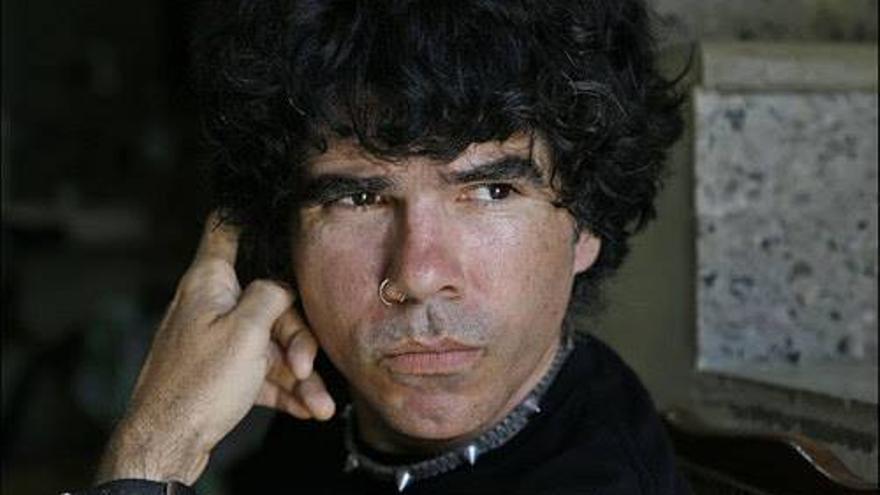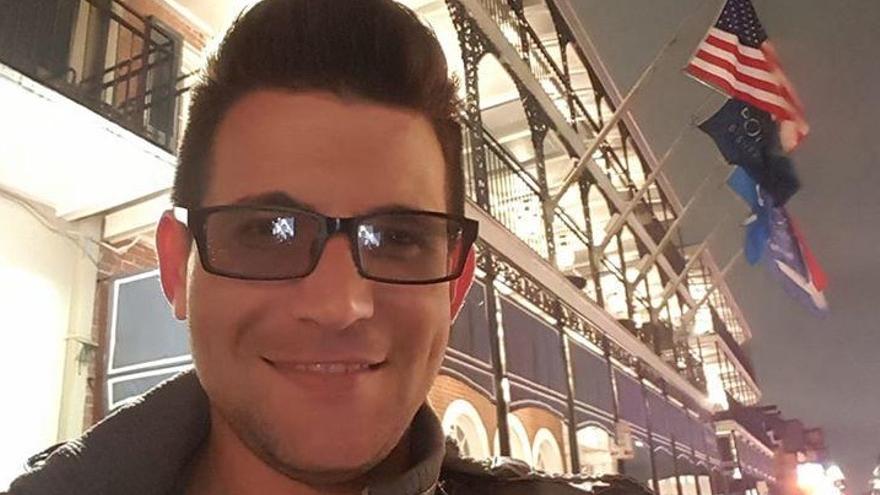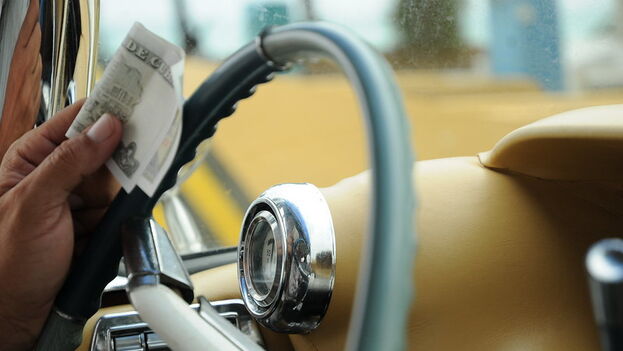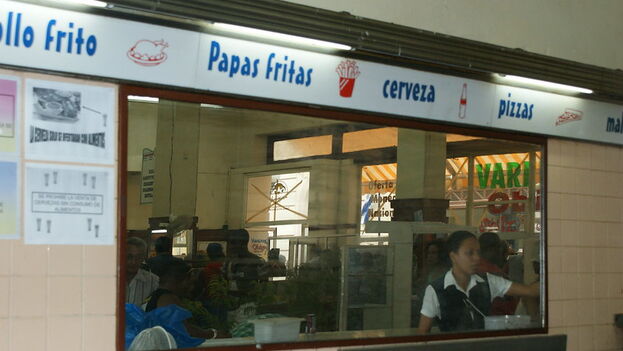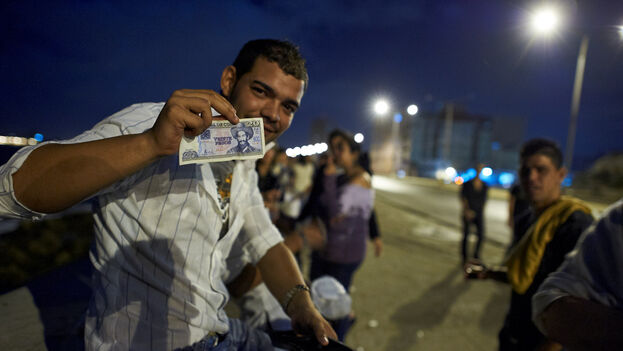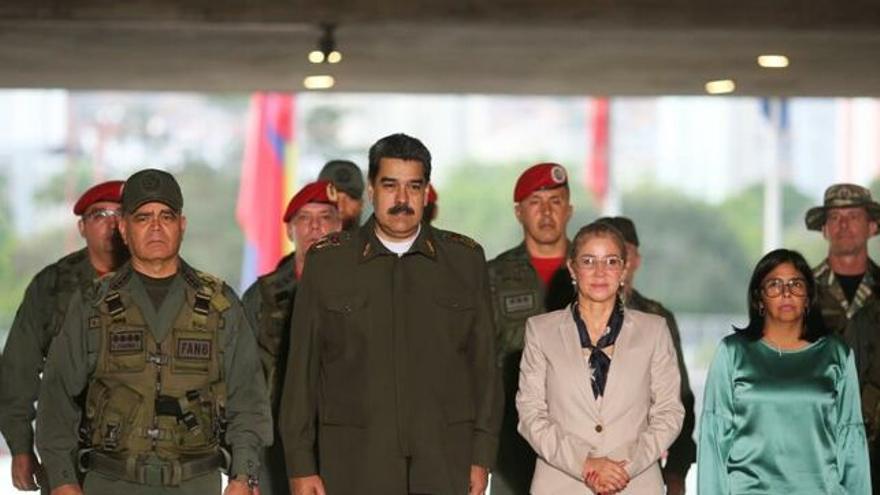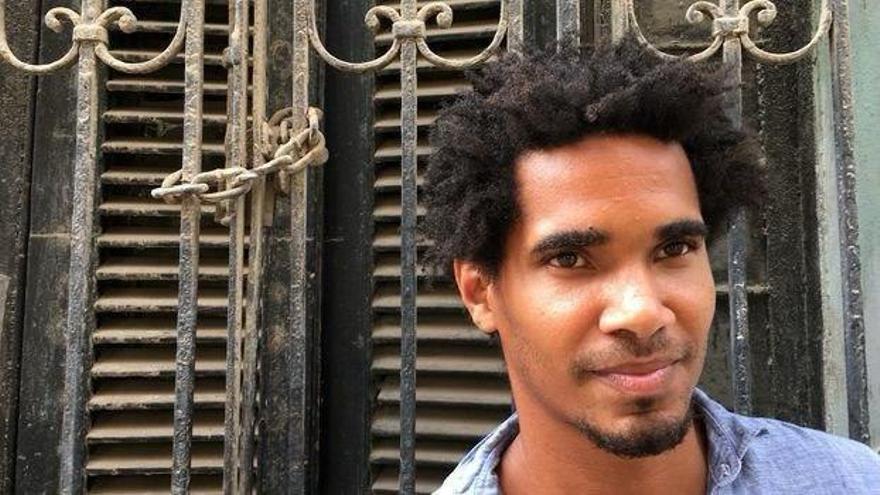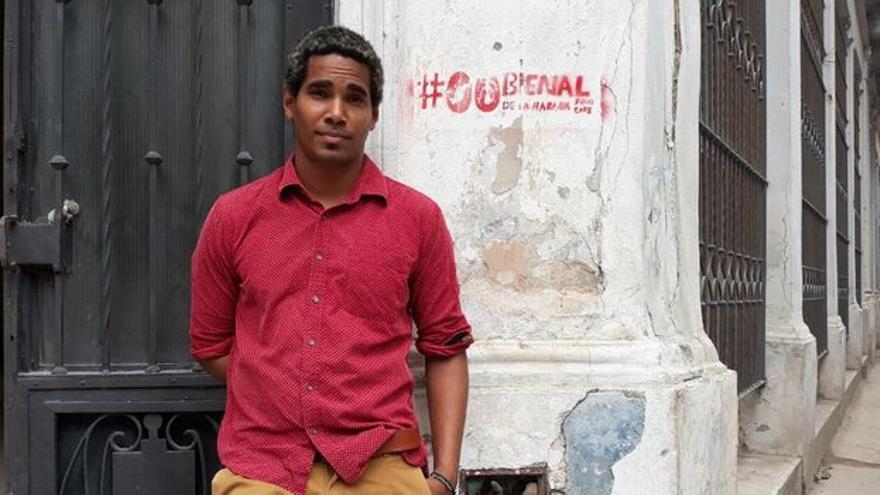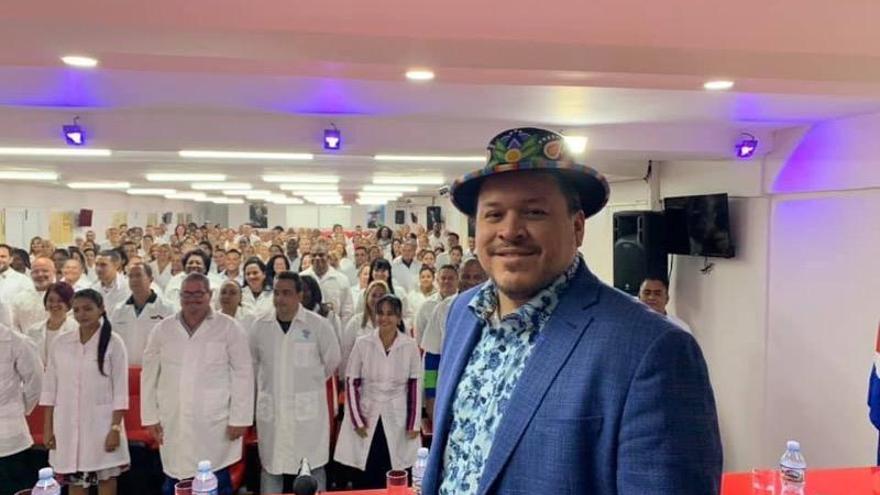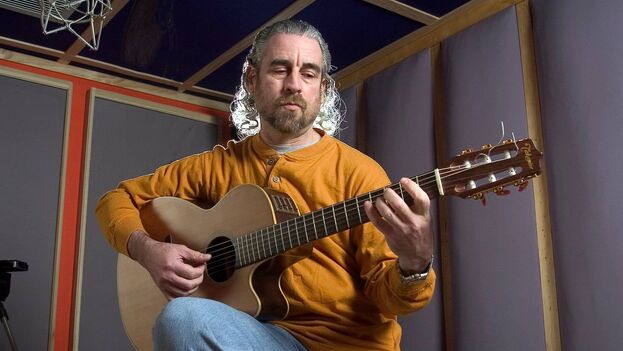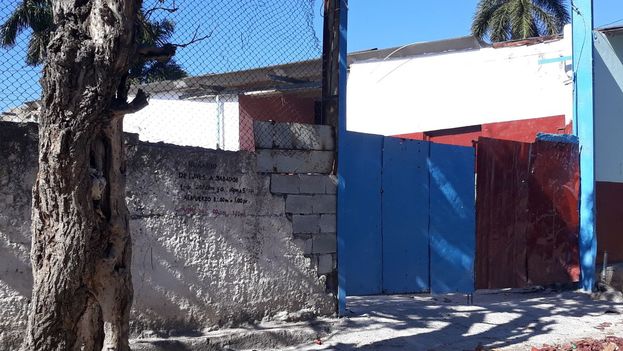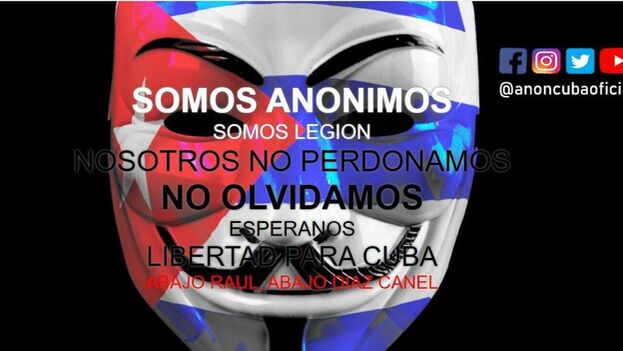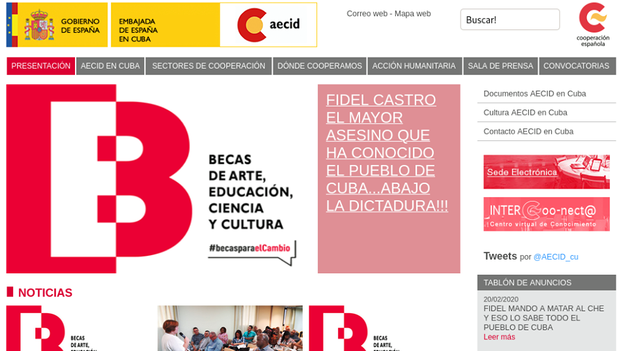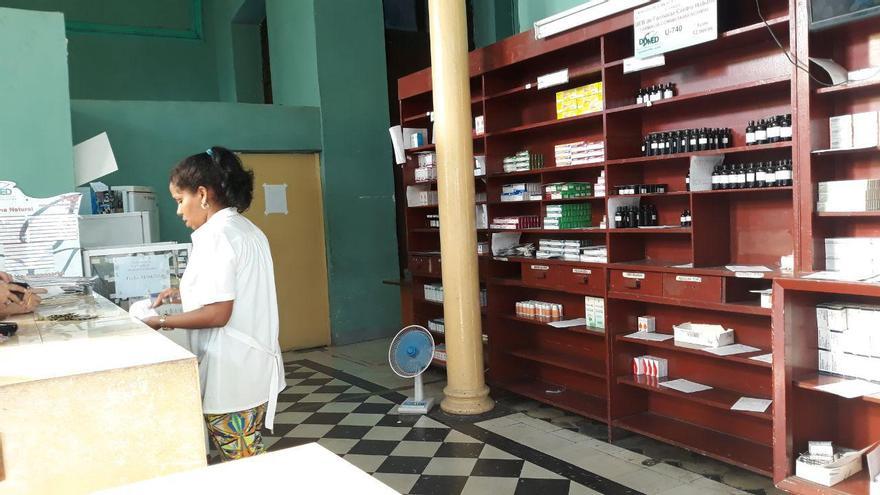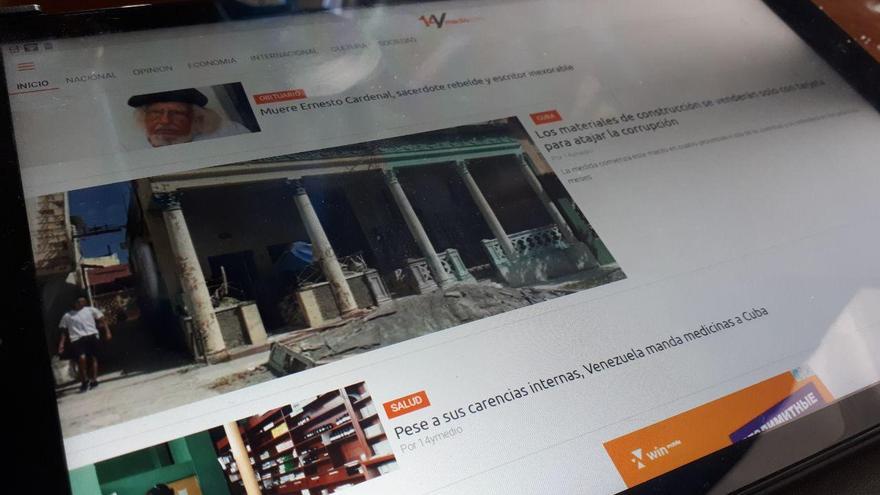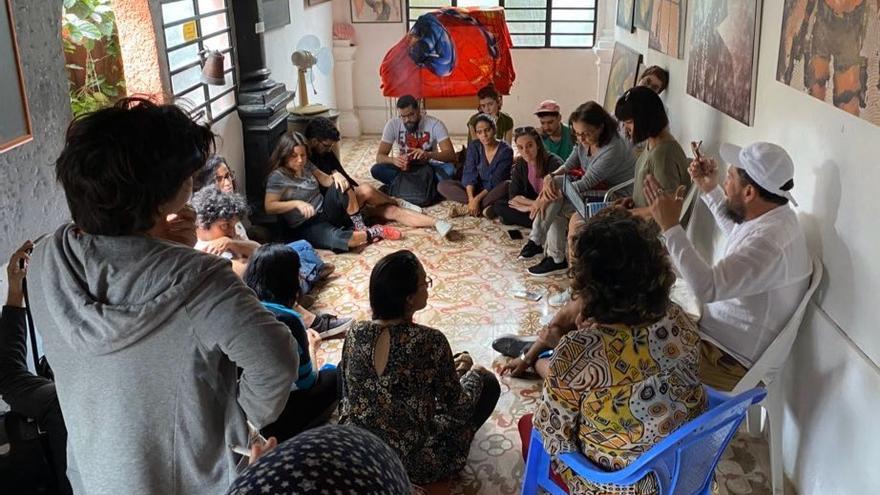
![]() 14ymedio, Havana, 9 March 2020 — The movement for the liberation of the artist Luis Manuel Otero Alcántara is growing every day and now includes ’official’ artist such as Alexis Leyva, Kcho, and Silvio Rodríguez. “Let’s stop this now, we don’t need it and Cuba’s future is not censorship,” Kcho writes in a comment posted on Facebook.
14ymedio, Havana, 9 March 2020 — The movement for the liberation of the artist Luis Manuel Otero Alcántara is growing every day and now includes ’official’ artist such as Alexis Leyva, Kcho, and Silvio Rodríguez. “Let’s stop this now, we don’t need it and Cuba’s future is not censorship,” Kcho writes in a comment posted on Facebook.
At least three people were arrested while protesting in downtown Havana: The reporters Camila Acosta and Abu Dujanah, along with art historian Omara Ruiz Urquiola, who were arrested at the corner of 23rd and 12th, in Havana’s Vedado neighborhood.
In a video, shared by the Cubanet portal on its Twitter account, it appears that a group of people respond to the protest with shouts, insults and revolutionary slogans. continue reading
The “summary trial” of Luis Manuel Otero Alcantara will be held this week, according to a statement denounced by members of the San Isidro Movement of which the artist is a member. The first of the oral hearings relates to “the insult to the national symbols, and will be held on Wednesday, March 11 at 9 am in the Municipal Court of 10 de Octubre, at Carmen and Juan Delgado, in the Víbora neighborhood.”
Several activists and independent journalists have been subjected to a police siege on Monday to prevent them from leaving their homes. Among those affected is the 14ymedio reporter, Luz Escobar.
The declaration of Cuban intellectuals, and other nationalities that, from the Avaaz platform gathers support and solidarity with Luis Manuel Otero, has already collected more than 2,700 signatures.
Several artists resident on the Island joined in to demand the release of Otero Alcántara with texts of solidarity in social networks, including singer-songwriter Silvio Rodríguez who, in a comment on his blog Segunda Cita said: “The country has enough problems with its destructive enemies and other internal ones, and its malfunctioning, for there to be a scandal about freedoms every five minutes.”
“There has to be another more sensible and intelligent way to deal with these issues that are obviously being addressed. There is no week in which there is not a show like this. It is a constant mockery. And it is shameful. I those who promote these policies in prison. They are discrediting the country,” he added.
Rodriguez believes that art “or at least a conception of it with many followers” must be “a provocation.”
“Why don’t we learn?” he says. “Why do we continue with those mediocrities that are from other times and countries? We are presenting a very sad impression of backwardness, of the Middle Ages. It’s not for Cuba to be like that, a country where in the mid-twentieth century wonderful art schools were built.
“How in the 21st century are we going to put young artists into ideological retreats?” he wonders. “I think we have to stop that clearly and vigorously. Because this kind of repeated attitude is a serious political problem.”
Another supporter, most anticipated in this case, was that of singer Haydée Milanés. “I ask for his immediate liberation and that with this gesture our country can take an important step towards respect and debate among Cubans,” the singer demanded in social networks.
A few hours earlier, singer-songwriter Pedro Luis Ferrer also referred to the artist’s imprisonment. “In the midst of an environment rarefied by laws and decrees that concern us and dismay everyone (not only those who are described as “dissidents”), intransigence is once again highly harmful to the spiritual health of our society. Clemency denotes energy; oppression does not. ”
“With all the respect that this shameful situation demands, I ask that the sensible request be met and that those who should never have been imprisoned be released, since everything that is alleged against them is highly debatable. The problems of the spirituality of a people can’t be resolved with the police. When will we learn?”
Art critic Orlando Hernández also joined in solidarity. “I am against this arrest, this trial and the entire hoax that has been armed against that artist, and I respect and admire his courage. I think his is a necessary work, especially since he questions and denounces the repression against freedom of thought, of word, of creation.”
“I am against his being imprisoned for defending with his skin what we all want and need, true freedom, which is not only to move our wings inside the cage, but to fly wherever anyone wants.”
The National Plastic Arts Prize winner René Francisco, wrote that if Luis Manuel Otero is not an artist, “it is an invalidation of the teachings received in the official art history programs at the ENA and the ISA that established performance art and artistic activism in our discernment (…) an endless list of artists whose body, energy and thought have tried to break the inertia and risk their privacy outdoors in the persistent search for their emancipation.”
He also expressed his disagreement with the artist’s imprisonment and added that “he would long for the forces and sanity” of cultural institutions “to accentuate common sense and stop this alarming process.”
“Enough of putting artists in jail for fun,” Cuban reggaeton Yosvanis Sierra Hernández, known as Chocolate, wrote on his Instagram account, along with a photo of the artist and the hashtag #LibertadParaLuisma (Freedom for Luisma — (Luis Manuel)).
Last week a group of intellectuals, both Cuban and of other nationalities, signed a letter in support of the artist and denounced that “he has been the victim of a campaign of defamation and harassment orchestrated by the Cuban Government as part of its implementation of Decree 349.”
Luis Manuel Otero Alcántara is facing a penalty of two to five years in prison for the crimes for which he is being investigated: insult the national symbols and damage to property. According to activist Michel Matos, also a producer of the San Isidro Movement, the artist was transferred to the Valle Grande prison last Wednesday as a “precautionary measure.”
The authorities arrested Otero Alcantara on the afternoon of March 1 to prevent him from attending the LGTBIQ ’kiss-in’ before the Cuban Institute of Radio and Television, a protest against the censorship of a scene from the movie Love, Simon in which two men kissed.
The San Isidro Movement also “launched a call from its Facebook platform, under the anonymous profile Free Luisma” for a public protest on Monday. The group thanked all the initiatives to support the release of Luis Manuel Otero Alcantara, but explains that the “current strategy” focuses on the legal defense of the artist.
________________
COLLABORATE WITH OUR WORK: The 14ymedio team is committed to practicing serious journalism that reflects Cuba’s reality in all its depth. Thank you for joining us on this long journey. We invite you to continue supporting us by becoming a member of 14ymedio now. Together we can continue transforming journalism in Cuba.

